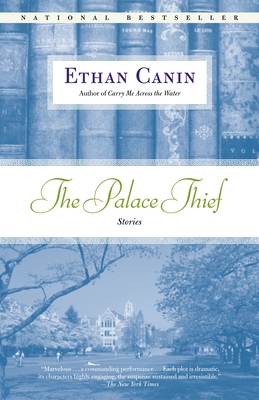Why We Like This Book
The Palace Thief is a most brilliant collection of four stories. Each one is spectacular in its own right, but our favorites are “Batorsag and Szerelem” and the title story. “Batorsag and Szerelem” is one of sibling rivalry unlike any other we have read, and it is hard not to recognize ourselves in this powerful family story.
In “The Palace Thief”, the tale centers on a teacher who overestimates his importance and comes to recognize his place in the world through his interaction with the boys at his boarding school. The main character, Mr. Hundert, dedicates his life to teaching and confesses, “That school was my life.”
Later in the story, when he is reunited with several of his best students, he reflects: “Oh, how little we understand of men if we think that their childhood slights are forgotten!” Canin’s insight into the human condition and his recurring statement that ‘character is destiny,’ and ‘the die is cast’ bring classic beliefs to the modern day.
Discussion Questions
1. In “The Palace Thief,” the speaker repeats the phrases “Il Ilacta Alea Esto” (the die is cast) and “Man’s character is his fate.” What is the relevance of these references to the story as a whole? How does the narrator use them, and what is his own degree of insight? In what ways does the element of irony figure into Hundert’s invoking of these statements?
2. Through Canin’s writing style the reader uncovers his unique point of view. How does this author see the world? What is his particular understanding of human nature? Is his view a universal one, and what is his take on the inner machinations of the human psyche? Pay close attention to the elements of rivalry and competition as you answer these questions.
3. What is the speaker’s role at St. Benedict’s? How does he regard himself in that role?
4. What is Batorsag and Szerelem about? What is the conflict of the story? In what way does the time (1970s) factor into the behavior of the characters?
5. How does the reader connect to the narrator and the other characters?
6. Is this Clive or William’s story? Why does William tell the tale?
7. How do you explain the title?
